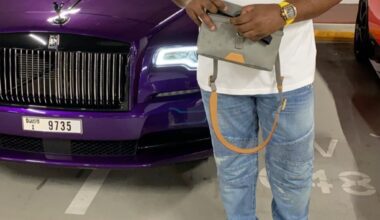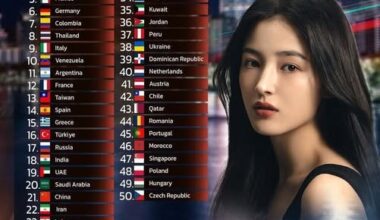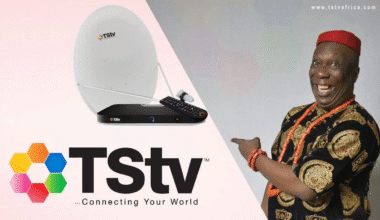The Nigerian automobile industry has come a long way—from foreign dominance to the rise of indigenous vehicle manufacturers. Following the introduction of the National Automotive Industry Development Plan (NAIDP) in 2013, the Federal Government sought to reduce dependence on imported vehicles by encouraging local vehicle assembly and manufacturing. The policy promised zero import duties on completely knocked-down (CKD) parts, making local production more appealing than importing fully built cars.
Despite facing challenges such as unstable power supply, inconsistent government policies, and a flood of cheap foreign used vehicles (popularly called Tokunbo), Nigeria is still nurturing a growing auto industry with both indigenous and foreign players. Let’s explore Nigeria’s journey and the list of indigenous car manufacturers reshaping mobility in Africa’s most populous country.
A Brief History of Automobile Manufacturing in Nigeria
The Nigerian automotive journey began in the 1970s, fueled by the oil boom and strategic joint ventures between the government and global automakers. This led to the establishment of six major assembly plants:
- Volkswagen of Nigeria – Lagos
- Peugeot Automobile Nigeria (PAN) – Kaduna
- National Truck Manufacturers – Kano
- Anambra Motor Manufacturing Company (ANAMMCO) – Enugu
- Leyland Nigeria Limited – Ibadan
- Steyr Nigeria Limited – Bauchi
These plants primarily assembled commercial and passenger vehicles like the Peugeot 504, Volkswagen Beetle, and the now-iconic Volkswagen Kombi, which evolved into the popular Danfo buses seen on Lagos roads.
However, the 1980s oil crash and poor economic planning led to a massive industry collapse. The shift to Tokunbo cars, which were cheaper and readily available, marked a decline in locally made vehicles.
READ MORE: 20 Best Platforms to Download Movies for Free (Legally)
Current State of the Industry
Today, while Tokunbo vehicles dominate the roads, indigenous manufacturers have risen with new energy and vision. Though challenges persist, these Nigerian-owned firms are redefining local content, creating jobs, and proving that Nigeria can manufacture world-class automobiles.
List of Indigenous Automobile Manufacturers in Nigeria
Here’s a curated and updated list of indigenous vehicle manufacturers leading Nigeria’s automotive revolution:
1. Innoson Vehicle Manufacturing (IVM)
- Founder: Chief Innocent Ifediaso Chukwuma
- Location: Umudim, Nnewi – Anambra State
- Founded: 2007
Innoson Motors is widely celebrated as Nigeria’s first indigenous vehicle manufacturer. It produces cars, buses, SUVs, and trucks with over 60% local content. IVM models include the Innoson Umu sedan, Innoson G5 SUV, IVM Carrier, and Innoson Buses for commercial transport. Innoson vehicles are used by government agencies, schools, and military organizations across Africa.
2. Nord Automobiles
- Founder: Joshua Oluwatobi Ajayi
- Location: Lagos
Nord Motors was launched with the vision to provide affordable and durable vehicles tailored for Nigerian roads. Its lineup includes the Nord Max, Nord A3, Nord A5, and Nord Flit, ranging from compact cars to SUVs and pickups. Nord also emphasizes local assembly, design, and servicing, aiming to make Nigeria a car manufacturing hub again.
3. Proforce Limited
- Founder/CEO: Ade Ogundeyin
- Specialty: Defense and Armored Vehicles
- Location: Ogun State
Proforce is Nigeria’s leading military and defense vehicle manufacturer, producing bulletproof vehicles, tactical APCs (Armoured Personnel Carriers), and surveillance units. Their clients include the Nigerian Army, police, and private security firms across West Africa.
4. Lanre Shittu Motors (LSM)
- Founder: Late Chief Lanre Shittu
- Products: Trucks and Heavy-Duty Vehicles
LSM is a major indigenous truck assembly plant, producing over 150 units per month. The company partners with brands like Mack and JAC, focusing on the haulage, construction, and logistics sectors. LSM is one of Nigeria’s biggest automotive distributors and a key player in the commercial vehicle industry.
5. Peugeot Automobile Nigeria (PAN)
- Location: Kaduna
- Established: 1972 (Joint venture)
Although PAN started as a government partnership with Peugeot of France, its structure changed in 2006 when ASD Motors acquired majority shares, making it privately owned. PAN still assembles vehicles like the Peugeot 301 and Peugeot Partner. It’s an important legacy plant that has adapted to modern demands.
6. Globe Motors
- Location: Lagos
- Partner Brands: Hyundai, Mercedes-Benz, Toyota
Globe Motors began as an automobile dealer but expanded into local assembly. In 2018, it partnered with Hyundai to launch a factory producing models like the Hyundai Elantra and Accent, targeting middle-class buyers. The company also assembles some luxury and commercial vehicles under license.
7. Dana Motors
- Subsidiary of: Dana Group
- Location: Lagos
Most known for assembling Kia vehicles, Dana Motors has brought models like the Kia Rio, Cerato, and Sportage to Nigerian customers through local production. It also offers after-sales services and a countrywide dealership network.
8. Stallion Group
- Acquisitions: Volkswagen of Nigeria
- Brands Assembled: Nissan, Hyundai, Honda, Volkswagen
Stallion Motors has revitalized the Volkswagen plant in Lagos, assembling cars under its multiple global partnerships. In 2014, it launched locally assembled Nissan cars, which gained popularity among government agencies due to cost-efficiency.
9. Coscharis Motors
- Founder: Cosmas Maduka
- Headquarters: Lekki, Lagos
Coscharis is a leading indigenous assembler and distributor of luxury vehicles like BMW, Jaguar, Land Rover, and Ford. The company owns a massive plant with an annual capacity of over 10,000 units. It also focuses on nationwide after-sales support and auto finance options for consumers.
10. Elizade Autoland (JAC Motors Nigeria)
- Founder: Chief Michael Ade-Ojo
- Location: Lagos
- Output: 15,000 vehicles per year (SKD basis)
Through a partnership with JAC Motors (China), Elizade Autoland assembles affordable sedans, buses, and pickups. Their focus is on durable vehicles for both personal and commercial use. Their SKD (Semi Knocked Down) facility also aligns with the FG’s automotive policy for industrial growth.
Final Thoughts
The presence of indigenous car manufacturers in Nigeria reflects the untapped potential in the local automotive industry. From commercial vehicles to defense systems, these companies are driving employment, skill development, and innovation in Nigeria’s manufacturing sector.
However, for long-term sustainability, the government must reinforce:
- Stable policies
- Access to credit for buyers
- Better infrastructure
- Investment in local raw materials
With the right support, Made-in-Nigeria cars can someday compete with global brands—not just in Nigeria, but across Africa.
FAQs: Indigenous Car Production in Nigeria
Are all Nigerian car manufacturers producing from scratch?
No, not all car manufacturers in Nigeria produce vehicles entirely from scratch. The majority of indigenous and foreign-backed manufacturers in Nigeria operate using two main assembly methods:
- Semi Knocked Down (SKD): This involves importing partially assembled vehicles and completing the final assembly stages locally. Components such as the engine, transmission, and chassis arrive already coupled, while local plants add other parts like wheels, seats, or paint finishing.
- Completely Knocked Down (CKD): This is a more advanced method where vehicles are imported in completely disassembled form and then assembled entirely in Nigeria. This method creates more local jobs and involves more technical input.
Only a few companies, like Innoson Vehicle Manufacturing (IVM), go beyond assembly by manufacturing vehicle parts locally, including plastics, bumpers, batteries, and even chassis components. Innoson sources up to 60–70% of its parts from within Nigeria and Africa, making it closer to full vehicle production than most others.
Why are locally made cars still expensive?
It’s a common misconception that locally made cars should automatically be cheap. In reality, several factors influence the cost of Nigerian-assembled vehicles:
- High Production Costs: Local manufacturers often deal with unreliable electricity, inadequate infrastructure, and high logistics costs, which increase operational expenses.
- Importation of Parts: Even when cars are assembled locally, most essential parts like engines, gearboxes, electronics, and interior fittings are still imported—often at high exchange rates and import duties.
- Limited Economies of Scale: With relatively low demand for new vehicles compared to used cars (Tokunbo), production volumes remain low. This prevents manufacturers from benefiting from large-scale cost efficiencies.
- Multiple Taxes and Regulatory Bottlenecks: Inconsistent policies, import bottlenecks, and levies on equipment and machinery can make local production less attractive than expected.
Despite these challenges, locally assembled cars are still cheaper than importing fully built new vehicles, mainly because they attract lower or zero import duties under the government’s automotive policy.
Which Nigerian-made car is best for personal use?
Several Nigerian-assembled or manufactured cars are suitable for personal or family use, depending on your needs, budget, and brand preference:
- Innoson Cars (IVM): The Innoson Umu sedan, G5 SUV, and IVM Caris are widely used as personal vehicles and for government transport due to their fuel efficiency and affordability. Spare parts are also locally available.
- Nord Automobiles: The Nord A3 and Nord A5 are compact and mid-sized sedans, built with road conditions in mind. They are practical, stylish, and appealing to urban dwellers.
- Hyundai Models (via Globe Motors): Hyundai Elantra, Accent, and i10, assembled in Nigeria, are known for their sleek design, fuel economy, and low maintenance costs. They’re great options for middle-income earners.
These cars are typically built to withstand Nigerian roads and offer after-sales support, making them good long-term investments.
Can I get spare parts and maintenance support?
Yes, most indigenous auto manufacturers and their partners have established nationwide after-sales support systems that include:
- Authorized Service Centers: These are available in major cities like Lagos, Abuja, Port Harcourt, Enugu, and Kano, offering repairs, diagnostics, and maintenance services.
- Spare Part Distribution Channels: Companies like Innoson, Nord, and Dana Motors ensure that spare parts are stocked locally and made available through certified dealers and outlets.
- Warranty Services: Many Nigerian-assembled vehicles come with warranties (ranging from 2–5 years), during which manufacturers provide free or subsidized maintenance for certain components.
- Customer Support and Technical Training: Some manufacturers, like Innoson and Coscharis, also offer training to mechanics and engineers to better service their cars, which boosts confidence among buyers.
In short, buying a Nigerian-made car doesn’t mean you’re on your own. Most manufacturers have built the necessary infrastructure to support their users throughout the vehicle’s lifecycle.





